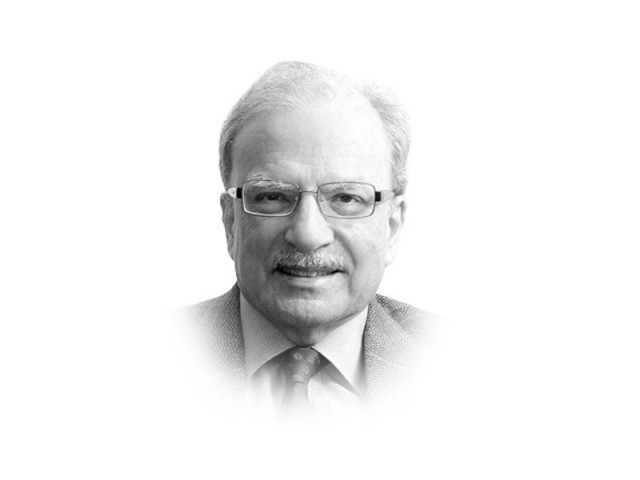The year that was
These migrations were seen as threatening precisely by the people who had been hurt by globalisation

The writer is a former caretaker finance minister and served as vice-president at the World Bank
In 1956, Nikita Khrushchev, then first secretary of the Communist Party of the Soviet Union, boasted of the rising power of the country over which he presided. “Whether you like or not, history is on our side. We will bury you,” he told the leaders of the West. That, of course, did not happen but the claim did not seem ridiculous then. The break-neck speed at which the Soviet Union had industrialised helped it to defeat the Nazi armies. The Germans, when they sent in their troops into Russia, thought they were invading a rural economy. Instead, they met an industrialised power that was able not only to push them back but bring under its control much of Eastern Europe. A dozen years later, in 1957, Moscow launched the Sputnik, a clear indication that it had become a technological rival for the United States. However, two decades later, this new industrial and technological power was not able to overcome the fierce resistance offered by an essentially primitive people when it invaded Afghanistan. The Soviets fought for 10 years but in 1989 they pulled out. Two years later, the Soviet Union collapsed bringing to an end the advance of Communism into Europe.
These were such impressive developments that they prompted the sociologist Francis Fukuyama to proclaim “the end of history.” The West, liberal democracy and capitalism, had won decisively and would become the only system of governance worldwide. History had ended as there would no longer be ideological conflicts.
But “globalisation has its discontents” warned the Nobel Laureate Joseph Stiglitz who had closely watched the process unfold while he was serving at the World Bank as the chief economist. It was not only academics that saw danger in leaving the management of the economies into the hands of private enterprise. Years after globalisation had diluted the presence of the state in domestic economic systems, another economist pointed out the contradictions in the process. Thomas Piketty of France worried about the widening of income disparities as the return on capital was significantly larger than the return on labour. Profits had outpaced wages by a wide margin. There was discontent and it produced a political backlash. What came to be known as ‘the base’ elected an unlikely leader, Donald Trump, to the American presidency.
By reducing not the physical but the effective distance between the West and the populace of the developing world, people, displaced by domestic conflict and economic distress, moved to the more developed parts of the globe. This brought not only those from the Middle East and North Africa into Europe but also East Europeans into Britain, and other Western nations in the continent. There were also large illegal and legal migrations from Mexico and Central America into the United States. There was deep resentment among those who believed that the newcomers had cost many in the host populations jobs and reduced income. This added to the discontent produced by globalisation. As many migrants who forced their way into Europe were Muslims, it produced a wave of Islamophobia that led to the rise of extremist parties in several countries.
It was in this turmoil in the West, that China continued its economic rise. At the 19th session of the Chinese Communist Party, the position of its energetic and ambitious president was consolidated. The ‘Xi Jinping thought’ was incorporated in the party’s constitution, giving it the place occupied by Mao Zedong. The most important part of this thought was the reference to the “new era”, meaning that China will be an important if not the dominant player in the new global order.
It was obvious that China was now putting forward a new form of governance. In it, one party controls the government and the government controls the people. The party, in turn, is controlled by the supreme leader. This was also the Soviet Union’s system that did not work and ultimately collapsed. Why did it fail in the Soviet Union but has worked spectacularly in China until now? Financial Times’ Martin Wolf provides a credible answer. “The big difference between the two outcomes lay with Deng Xiaoping’s brilliant choices,” he wrote in a column published late last year. “China’s paramount leader after Mao Zedong kept the Leninist political system — above all, the dominant role of the Communist party — while freeing the economy.” Xi Jinping is likely to follow the same route with one big difference. While Deng wanted to keep his and his party’s focus on home, Xi will have China project itself in what he calls the “new era”. The Road and Belt Initiative is a part of this projection.
Published in The Express Tribune, January 15th, 2018.
Like Opinion & Editorial on Facebook, follow @ETOpEd on Twitter to receive all updates on all our daily pieces.















COMMENTS
Comments are moderated and generally will be posted if they are on-topic and not abusive.
For more information, please see our Comments FAQ